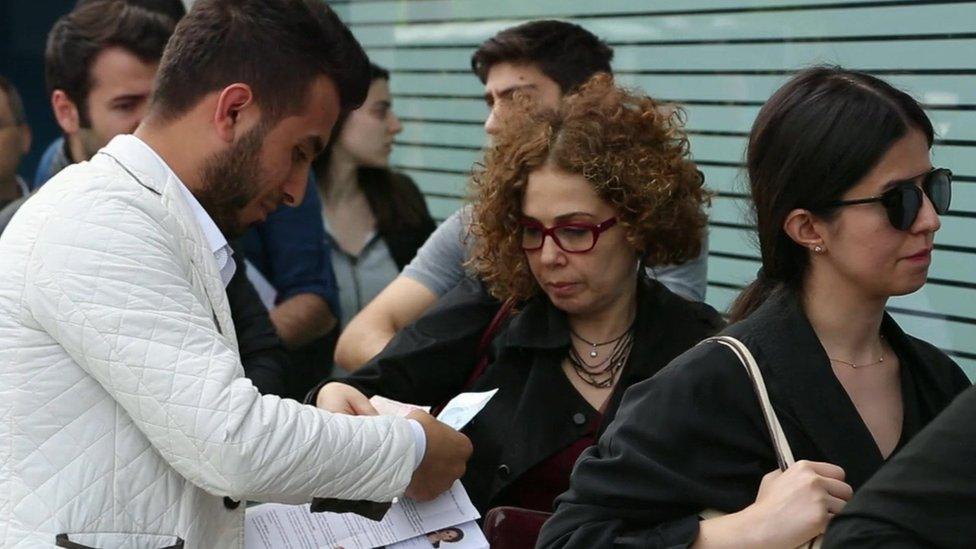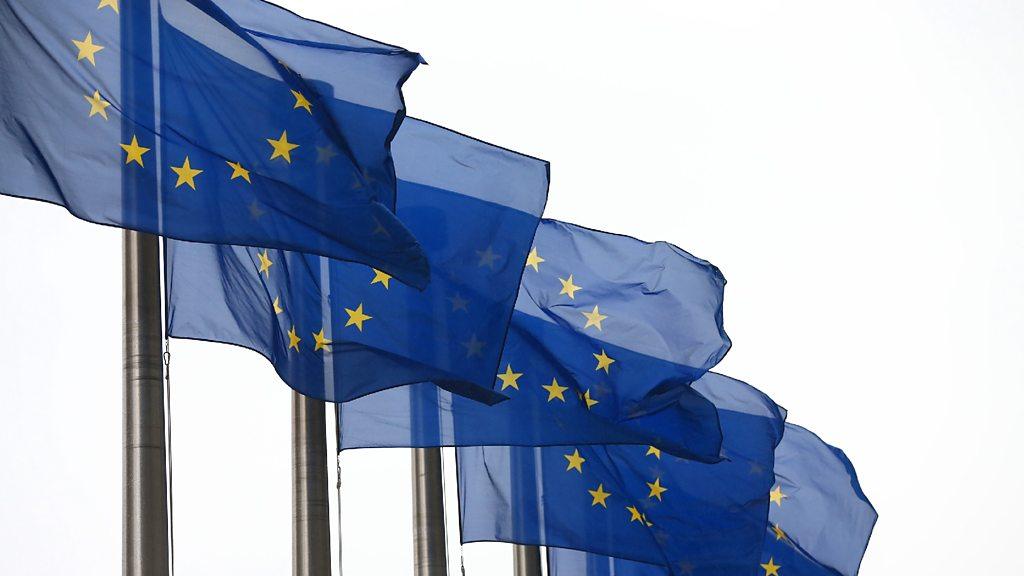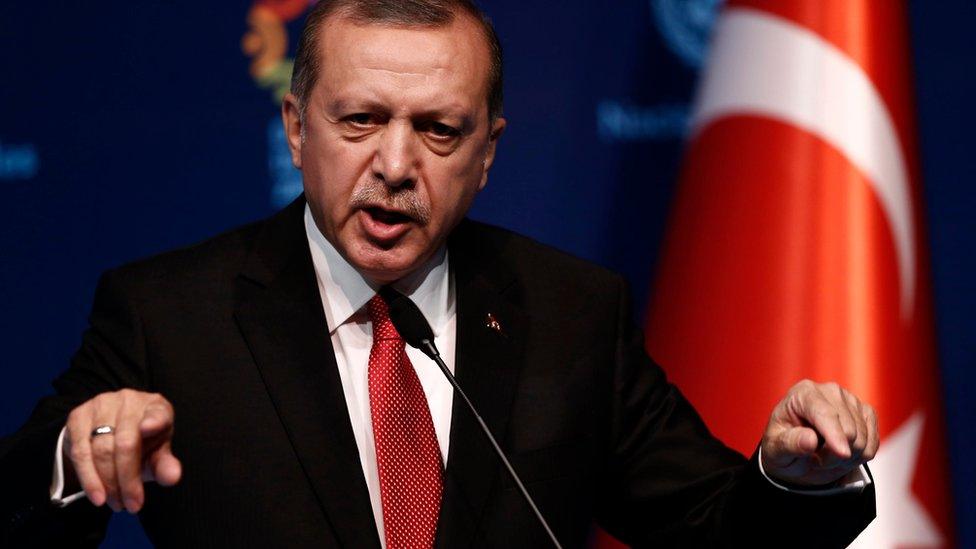Turkey visa move suggested by UK diplomat, papers show
- Published

Turkey has long been pressing for visa-free travel to the European Union
A British diplomat suggested visa-free travel for some Turkish nationals should be extended to the UK, documents leaked to the Sunday Times, external show.
She suggested the move be considered for Turkish "special passport" holders, who are mainly civil servants.
Justice Secretary Michael Gove said it showed the UK was "actively working" towards Turkey's EU entry.
But the UK home and foreign secretaries said any suggestion of changing visa arrangements was "completely untrue".
The EU backed Turks getting visa-free travel inside Europe's Schengen area, of which the UK is not a member, as a deal for accepting more migrants.
The leaked telegrams, sent on 5 May by Janet Douglas, the deputy head of mission at the British Embassy in Ankara, relate to the EU's own visa deal planned as recompense for Turkish help dealing with the Syrian migrant crisis.
The deal, to allow visa-free travel to Schengen countries, was offered in return for Turkey taking back migrants who crossed the Aegean Sea to Greece. The EU fears that, without it, Turkey will not control migration.
What is the Schengen agreement?
EU sets out road to Turkey visa deal
In one leaked document, Ms Douglas said that when the EU deal was implemented "we will need to develop our own lines on the UK's stance to visa-free travel for Turks".
"One option would be to assess again the possibility of visa travel for Turkish special passport holders which would be a risk, but a significant and symbolic gesture to Turkey."
'Open the floodgates'
Special passports are mainly held by civil servants, their spouses and their unmarried children below the age of 25.
Within the reported deal there was no suggestion that "special passport holders" would have access for work.
Ms Douglas was also said to warn that failure to bring in the visa-free travel deal could prompt Turkey to "open the floodgates" and allow those fleeing Syria and elsewhere easier access to the EU.
It is not known how the Foreign Office responded to this correspondence from Ms Douglas.
But Mr Gove, who backs the UK leaving the EU, told the BBC's political editor Laura Kuenssberg that the implications of the documents were clear.
"Later this year, if EU plans are implemented, then we'll have visa-free travel for 77 million Turks throughout Europe," he said.
"It appears from this diplomatic telegram today that there are suggestions that some special Turkish passport holders will be allowed to come to the UK as well.
"The evidence is that the British government and the EU are actively working towards Turkey joining the EU and Turkish citizens being able to travel throughout the EU."
'Appalling deceit'
Foreign Secretary Philip Hammond and Home Secretary Theresa May - both of whom back the Remain campaign - said there had been a selective leak of diplomatic telegrams and that the story was "completely untrue".
They said border restrictions would not be lifted "regardless of what arrangements other member states... may make with Turkey".
In a joint statement they said: "The government's policy is, and will remain, to maintain current visa requirements for all Turkish nationals wishing to visit the UK, regardless of what arrangements other member states in the Schengen area may make with Turkey.
"Schengen visas do not give anyone the right to access the UK.
"The purpose of diplomatic telegrams is for our embassies around the world to feed back information on the position and views of foreign governments.
"They are reports from our diplomatic posts, not statements of British government policy."
Mr Cameron has said Turkey joining the EU is not "remotely on the cards", describing the issue as a "red herring" in the referendum debate and making clear the UK has a veto on any prospective member joining the bloc.
The EU agreed in March to offer Turkey the proposed visa-free access by 1 July but the country has yet to fulfil all of the conditions laid down by the European Commission, including changes to Ankara's anti-terrorism laws to meet EU concerns over human rights.
- Published3 May 2016

- Published3 May 2016

- Published4 May 2016

- Published25 May 2016
